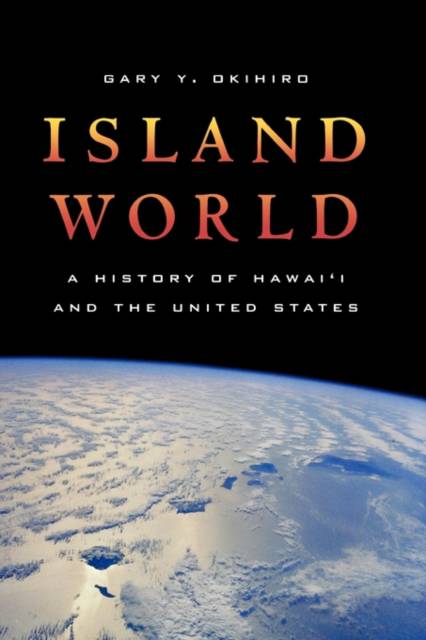
- Afhalen na 1 uur in een winkel met voorraad
- Gratis thuislevering in België vanaf € 30
- Ruim aanbod met 7 miljoen producten
- Afhalen na 1 uur in een winkel met voorraad
- Gratis thuislevering in België vanaf € 30
- Ruim aanbod met 7 miljoen producten
Zoeken
€ 65,95
+ 131 punten
Omschrijving
Brilliantly mixing geology, folklore, music, cultural commentary, and history, Gary Y. Okihiro overturns the customary narrative in which the United States acts upon and dominates Hawai'i. Instead, Island World depicts the islands' press against the continent, endowing America's story with fresh meaning. Okihiro's reconsidered history reveals Hawaiians fighting in the Civil War, sailing on nineteenth-century New England ships, and living in pre-gold rush California. He points to Hawai'i's lingering effect on twentieth-century American culture--from surfboards, hula, sports, and films, to art, imagination, and racial perspectives--even as the islands themselves succumb slowly to the continental United States. In placing Hawai'i at the center of the national story, Island World rejects the premise that continents comprise "natural" states while islands are "tiny spaces," without significance, to be acted upon by continents. An astonishingly compact tour de force, this book not only revises the way we think about islands, oceans, and continents, it also recasts the way we write about space and time.
Specificaties
Betrokkenen
- Auteur(s):
- Uitgeverij:
Inhoud
- Aantal bladzijden:
- 328
- Taal:
- Engels
- Reeks:
- Reeksnummer:
- nr. 8
Eigenschappen
- Productcode (EAN):
- 9780520252998
- Verschijningsdatum:
- 11/08/2008
- Uitvoering:
- Hardcover
- Formaat:
- Genaaid
- Afmetingen:
- 152 mm x 203 mm
- Gewicht:
- 589 g

Alleen bij Standaard Boekhandel
+ 131 punten op je klantenkaart van Standaard Boekhandel
Beoordelingen
We publiceren alleen reviews die voldoen aan de voorwaarden voor reviews. Bekijk onze voorwaarden voor reviews.











